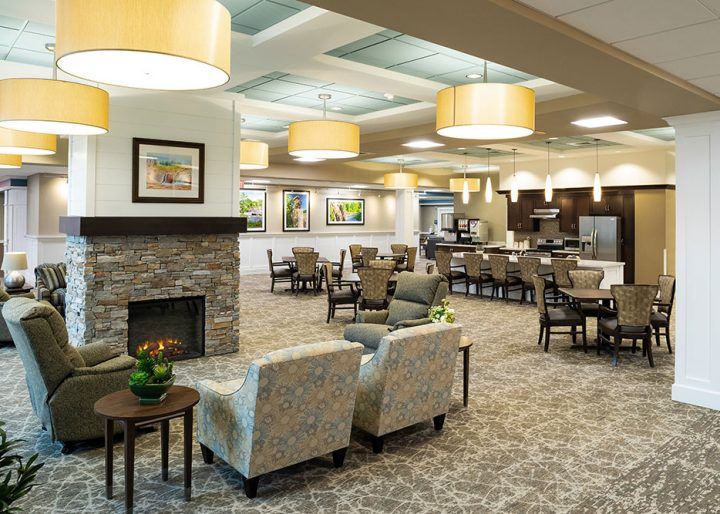Exploring Memory Care Options in Assisted Living Neighborhoods for Improved Health And Wellbeing
The exploration of memory treatment alternatives within assisted living communities represents a vital action in improving the well-being of people facing cognitive obstacles. As families seek the ideal feasible care for their loved ones, understanding the essential features and advantages of these neighborhoods becomes critical.

Understanding Memory Treatment
(Dementia Care Charlotte)As individuals age, lots of face cognitive obstacles that call for specialized support, making understanding memory care vital for family members looking for ideal living arrangements. Memory care specifically deals with individuals with dementia, Alzheimer's illness, and other memory-related conditions, offering a structured atmosphere that promotes security and wellness.
This specialized care is developed to support locals in preserving their self-reliance while addressing their distinct cognitive requirements. Memory care facilities usually utilize qualified staff well-informed in handling the complexities of memory impairments, ensuring that locals obtain personalized interest and care. These professionals are equipped to deal with behavioral concerns and can give psychological support to both locals and their families.
In addition to professional staff, memory treatment environments are commonly outfitted with restorative programs that encourage cognitive interaction, social interaction, and physical activity. These programs aim to boost the lifestyle for individuals encountering memory challenges while cultivating a feeling of community.
Understanding memory care is important for families, as it notifies their decisions relating to ideal living plans. By identifying the specific demands of their enjoyed ones, households can make enlightened options that focus on both security and psychological well-being in a helpful setting.
Secret Attributes of Memory Care
Numerous crucial features differentiate memory care facilities from standard assisted living areas, guaranteeing that homeowners receive the specialized assistance they need. Memory treatment environments are created to be safe and safe, decreasing the risk of roaming and disorientation - Memory Care. This includes functions such as encased outdoor areas and regulated access points

Additionally, memory care programs often include organized regimens, which can enhance cognitive function and supply a feeling of security for homeowners. Tasks are especially designed to involve memory and cognitive abilities, usually including memory therapy and arts and crafts tailored to specific choices.
In addition, memory treatment centers typically supply individualized care plans that address the specific demands and choices of each homeowner, making certain that treatment is both customized and efficient. These functions work collectively to develop a setting for advertising the dignity and wellness of individuals coping with memory problems.
Benefits of Specialized Support
Specialized support in memory treatment centers provides numerous advantages that dramatically improve the lifestyle for locals (Assisted Living). Among the main advantages is the customized technique to care, which deals with the distinct demands of people with memory disabilities. Educated team participants are equipped with the abilities and expertise to manage the obstacles linked with problems such as Alzheimer's illness and various other kinds of mental deterioration, ensuring that citizens obtain suitable interventions and support
Furthermore, specific support fosters a sense of security and protection. Homeowners are kept an eye on in atmospheres made to lessen confusion and stress and anxiety, which can intensify memory-related issues. This supportive atmosphere not just helps in preserving daily routines yet likewise advertises psychological security.
Additionally, specialized assistance urges social communication amongst homeowners, which can minimize feelings of seclusion and isolation. By producing an area where individuals comprehend and connect to each other's experiences, these centers aid develop purposeful links.
(Dementia Care Charlotte)Ultimately, the advantages of specialized assistance prolong beyond physical treatment; they contribute to boosted psychological Dementia Care Charlotte and emotional well-being, enabling residents to keep dignity and a better of life throughout their remain in memory care centers.
Engaging Tasks for Residents
Engaging tasks play an important duty in the overall health and wellbeing of homeowners in memory care neighborhoods. These tasks not only promote cognitive feature yet also foster social interaction, psychological expression, and a feeling of purpose. Tailored programs that takes into consideration individual preferences and abilities is necessary for making the most of involvement and pleasure.
Imaginative arts, such as paint or music therapy, enable citizens to share themselves while enhancing cognitive abilities. Physical activities, including gentle exercises or dance, contribute to physical health and wellness and wheelchair, which are essential for keeping independence. Furthermore, reminiscence therapy, which includes going over previous experiences, can stimulate favorable memories and enhance links among citizens.
Social games and group activities, such as card games or gardening, encourage teamwork and interaction, giving opportunities for residents to build relationships. Structured routines that include these tasks can aid minimize anxiousness and behavior concerns usual in individuals with memory impairments.
Ultimately, the execution of interesting activities tailored to the one-of-a-kind demands of citizens not only improves top quality of life however also boosts the total environment of memory care areas, producing a nurturing and supportive setting.
Selecting the Right Neighborhood
Choosing the appropriate memory treatment neighborhood is a significant choice that can exceptionally impact the top quality of life for both locals and their families. When reviewing prospective areas, it is necessary to think about several important elements that straighten with the certain needs of the person.
First, assess the facility's staff-to-resident ratio and the credentials of the caretakers. Well-trained personnel who comprehend the intricacies of memory-related conditions are crucial for offering reliable care. Additionally, make inquiries concerning the community's method to personalized treatment plans, as individualized attention can dramatically improve a local's well-being.
Next, examine the atmosphere itself. A protected, welcoming environment with acquainted furnishings and sensory aspects can help decrease anxiety and promote comfort. Seek neighborhoods that use appealing activities customized to residents' rate of interests and cognitive capabilities, as these can foster social communication and cognitive stimulation.
Lastly, take into consideration the area's plans on family participation. Regular communication and opportunities for household engagement in treatment can strengthen connections and supply psychological assistance. By completely investigating and seeing prospective memory care neighborhoods, households can make an informed decision that focuses on the health and wellbeing of their loved ones.
Final Thought
In conclusion, discovering memory care options within assisted living areas presents an essential opportunity to enhance the well-being of individuals with dementia and related problems. The mix of specialized support, structured routines, and engaging activities fosters an environment for cognitive stimulation and social interaction. By very carefully reviewing area resources and staff certifications, families can make certain that their liked ones get the dignity, psychological support, and lifestyle they deserve in these devoted care setups.